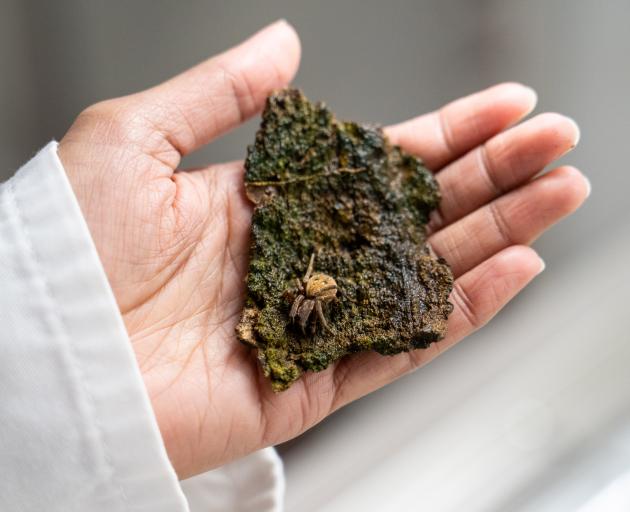Science
Parasitic Worms Transform Spiders into ‘Zombie’ Hosts

A team of researchers in New Zealand is investigating how parasitic worms, known as mermithids, are turning spiders into what can only be described as “zombies.” Usha Mendis, a PhD student at Lincoln University, is at the forefront of this research, aiming to understand the implications of these parasites on local ecosystems.
Mendis’s work focuses on the impact of mermithids, which target various invertebrates, including caddisflies, mayflies, and grasshoppers. She has discovered that these parasites can infect multiple species of spiders, raising concerns about their role in New Zealand’s biodiversity, where over 90% of spiders are endemic. “If something were to happen to them, it would not be good for our biodiversity,” she stated.
The lifecycle of mermithids is particularly troubling. Once a spider is infected, the parasite alters its behavior, driving it toward moisture where the nematodes can thrive. This process ultimately leads to the spider’s death. Mendis described the physical changes in infected spiders, noting that “their legs get shorter but thicker… They look like zombies.”
Identifying infected spiders can be challenging, as the changes may not be immediately visible. Mendis explained that the only certain way to confirm an infection is post-mortem, when the nematodes emerge to continue their lifecycle. This underscores the need for further research to understand how the nematodes enter their hosts, an area Mendis is keen to explore.
The implications of these findings extend beyond just the spiders themselves. “Spiders hold a special place in the food chain,” Mendis emphasized. The disruption of their roles could have cascading effects on the ecosystem. Infected spiders often succumb to drowning as they seek out water to facilitate the nematodes’ growth and reproduction.
Mendis has been employing water traps to collect the nematodes, which have only been identified in New Zealand for the past 35 years. This ongoing research aims to shed light on the complex relationships between these parasites and their spider hosts.
As Mendis continues her studies, she urges the public to reconsider their perceptions of spiders. “They may look disruptive and creepy, but they’re not the enemy,” she said. “They’ve got their own problems to deal with.” Understanding these dynamics is crucial, as the health of spider populations is integral to maintaining ecological balance in New Zealand and beyond.
-

 World4 months ago
World4 months agoTest Your Knowledge: Take the Herald’s Afternoon Quiz Today
-

 Sports4 months ago
Sports4 months agoPM Faces Backlash from Fans During Netball Trophy Ceremony
-

 Lifestyle4 months ago
Lifestyle4 months agoDunedin Designers Win Top Award at Hokonui Fashion Event
-

 Entertainment4 months ago
Entertainment4 months agoExperience the Excitement of ‘Chief of War’ in Oʻahu
-

 Sports4 months ago
Sports4 months agoLiam Lawson Launches New Era for Racing Bulls with Strong Start
-

 World5 months ago
World5 months agoCoalition Forms to Preserve Māori Wards in Hawke’s Bay
-

 Health4 months ago
Health4 months agoWalking Faster Offers Major Health Benefits for Older Adults
-

 Lifestyle4 months ago
Lifestyle4 months agoDisney Fan Reveals Dress Code Tips for Park Visitors
-

 Politics4 months ago
Politics4 months agoScots Rally with Humor and Music to Protest Trump’s Visit
-

 Top Stories5 months ago
Top Stories5 months agoUK and India Finalize Trade Deal to Boost Economic Ties
-

 Health2 months ago
Health2 months agoRadio Host Jay-Jay Feeney’s Partner Secures Visa to Stay in NZ
-

 World5 months ago
World5 months agoHuntly Begins Water Pipe Flushing to Resolve Brown Water Issue









